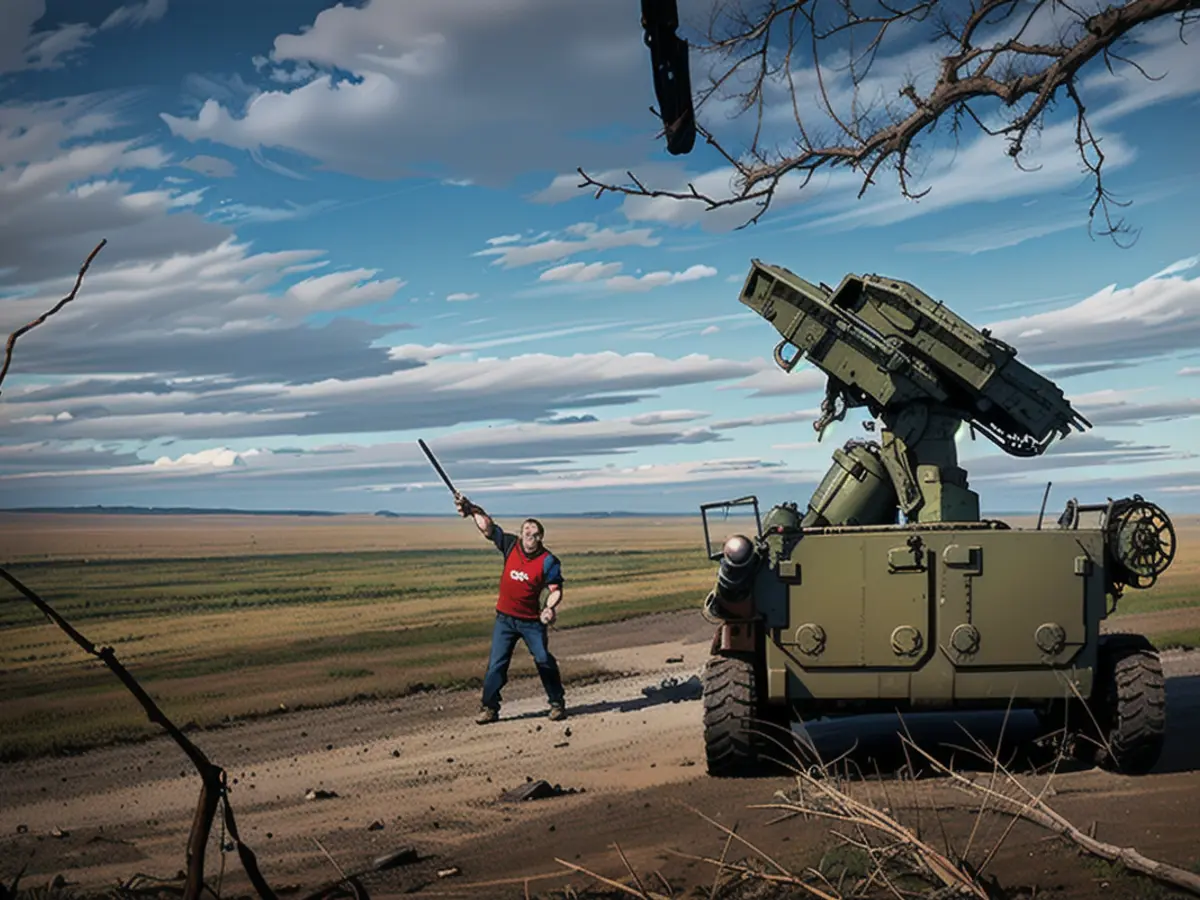Perspective: Biden may be overestimating Putin's danger.
The French and German governments have now joined the UK in stating that the weapons they supply to Ukraine could potentially be used in strikes on Russian soil. Russian President Vladimir Putin has responded to these moves with warnings of "serious consequences", especially for "small and densely populated countries". These threats have been made repeatedly by Putin as the West has increased its support for Ukraine. However, the United States should not take these warnings seriously.
Let's look at some historical events over the last few years.
Ukraine requested Javelins and Stingers before the full-scale war broke out in February 2022, when Russia invaded Ukraine. At first, they didn't receive the amount they wanted due to fears of escalation. Later, they received more and used them effectively, leading to them receiving even more. No nuclear war occurred.
After the Battle of Kyiv was won, Ukraine requested MiG-29s, which Poland agreed to provide in exchange for Western fighters. The Biden administration initially blocked this, but later changed its stance, and no nuclear war occurred.
Ukraine requested F-16 fighter jets to protect their airspace. The administration initially said no, then changed its position, and no nuclear war occurred.
Ukraine requested Patriot missiles to defend against Russian air attacks. The administration initially said no, then changed its stance, and no nuclear war occurred. Many lives were saved.
Ukraine requested HIMARS rocket launchers for attacking Russian supply lines. The administration initially said no, then changed its stance, and no nuclear war occurred.
Ukraine requested Abrams tanks and Bradley infantry fighting vehicles for trench warfare in the east. The administration initially said no, then changed its stance, and no nuclear war occurred.
Ukraine requested ATACMS missiles with a range of about 190 miles, to attack Russian targets. The administration initially said no, then changed its stance, and no nuclear war occurred.
In almost every case mentioned, Russia threatened escalation, an attack on NATO, or the use of nuclear weapons. Each time, the bluff was called, and Ukraine was able to better defend their territory. While Russian threats should not be taken lightly, history has shown us that these threats are often empty. During the Cold War, nuclear threats were not uncommon, but the US did not allow them to stop advancing its foreign policy interests.
Imagine if Ukraine had been provided with all the weapons from the start. After the 2022 counteroffensive, Russia would have been on the defensive, disorganized, and demoralized, and struggling to recruit more troops. Ukraine might have finished the conflict using all these weapons, or at least had a much more successful counteroffensive in 2023. The war might have ended.
Some argue that the Biden administration's cautious approach has allowed the US to provide Ukraine with increasing amounts of firepower without triggering Russian tripwires. But this is not how war works. The idea that Russia would use nukes has been shown not to be a real concern. Just as we slowly ratchet up pressure, so could Russia slowly increase its pain tolerance and have chosen to react at any point.
It's important to remember these facts as Ukraine continues to request permission to strike military targets within Russia with American weapons. So far, they have been denied, but it might be predicted: they will eventually be granted this permission. Why wait? Why delay while Ukrainians continue to lose their lives?
We understood the prohibition on attacks on Russian soil when Ukraine was struggling to defend Kyiv. It didn't make sense to waste resources on "revenge strikes" when the focus was on clearing territory. However, once the war transitioned into an artillery duel in eastern Ukraine and became a war of attrition, maintaining this prohibition made no sense.
Right now, Ukrainians are forced to endure Russian artillery strikes on civilian targets. Despite knowing the origin of these attacks, they are unable to strike back.
Of course, ensuring proper escalation management is crucial, and the US does deserve a seat at the table when it comes to lethal aid provided to Ukraine. However, in the face of an existential crisis, considerable leeway should be given to Ukraine to determine how best to defend their land and save lives.
We've heard Ukrainian soldiers recount stories of Russian columns advancing, being repelled, and then retreating to safe Russian territory to rest and regroup before attacking again. In logical warfare, the moment of retreat and regroup is the perfect time to strike back even harder, creating confusion, panic, and destroying fighting strength and morale. Ukraine cannot win if they are unable to retaliate against Russian attacks on civilian targets without fear of nuclear reprisals.
Ukraine is currently fighting for its very existence, but their struggle extends beyond their borders. They're also fighting to preserve the collective West and maintain the post-World War II order. With such significant ramifications on a global scale, the Biden administration needs to clarify their goals behind their support. A clear strategic target, which was lacking in their situations in Vietnam and Afghanistan, could pave the way for success. But does the US want Ukraine to be victorious? If so, what would that entail and what steps must be taken to accomplish these ambitions swiftly? Or is it merely sustaining a war of attrition until Russia reaches the bargaining table?
Strategically, annihilating the opposing side is the primary goal in any victory, through frontal attacks or dismantling their operations and plans. The notion that Russia can currently deem its own territory invincible against American weaponry stands in opposition to the idea of a Ukrainian triumph.
Ukraine has been hindered from attacking legitimate military targets due to a terrifying fear of escalation, despite international law allowing them to defend themselves in such a manner. The Biden administration should be commended for their contributions to Ukraine, particularly considering the previous President Trump's threat to abandon them. Regrettably, the concern for escalation, albeit admirable, is thwarting a Ukrainian victory.

Read also:
- This will change in December
- Dikes withstand water masses so far - Scholz holds out the prospect of help
- Fireworks and parties ring in 2024 - turn of the year overshadowed by conflicts
- Attacks on ships in the Red Sea: shipping companies avoid important trade route
Despite the warnings from Russian President Vladimir Putin, the rising consensus among European allies suggests a shift in opinions regarding the use of supplied weapons against Russian soil. The French and German governments, following the UK, are increasingly asserting that the weapons they provide to Ukraine could potentially be used in strikes against Russian targets, should the situation necessitate it.
Given the success of Ukraine in dealing with Russian threats without escalating into nuclear conflict, some analysts might reconsider their opinions on the willingness of the Biden administration to allow Ukrainian strikes on Russian territory with American weapons. The history of Ukraine's requests for military aid and the subsequent absence of nuclear war suggests that these threats from Putin may not hold the same ominous weight they once did.
Source:







